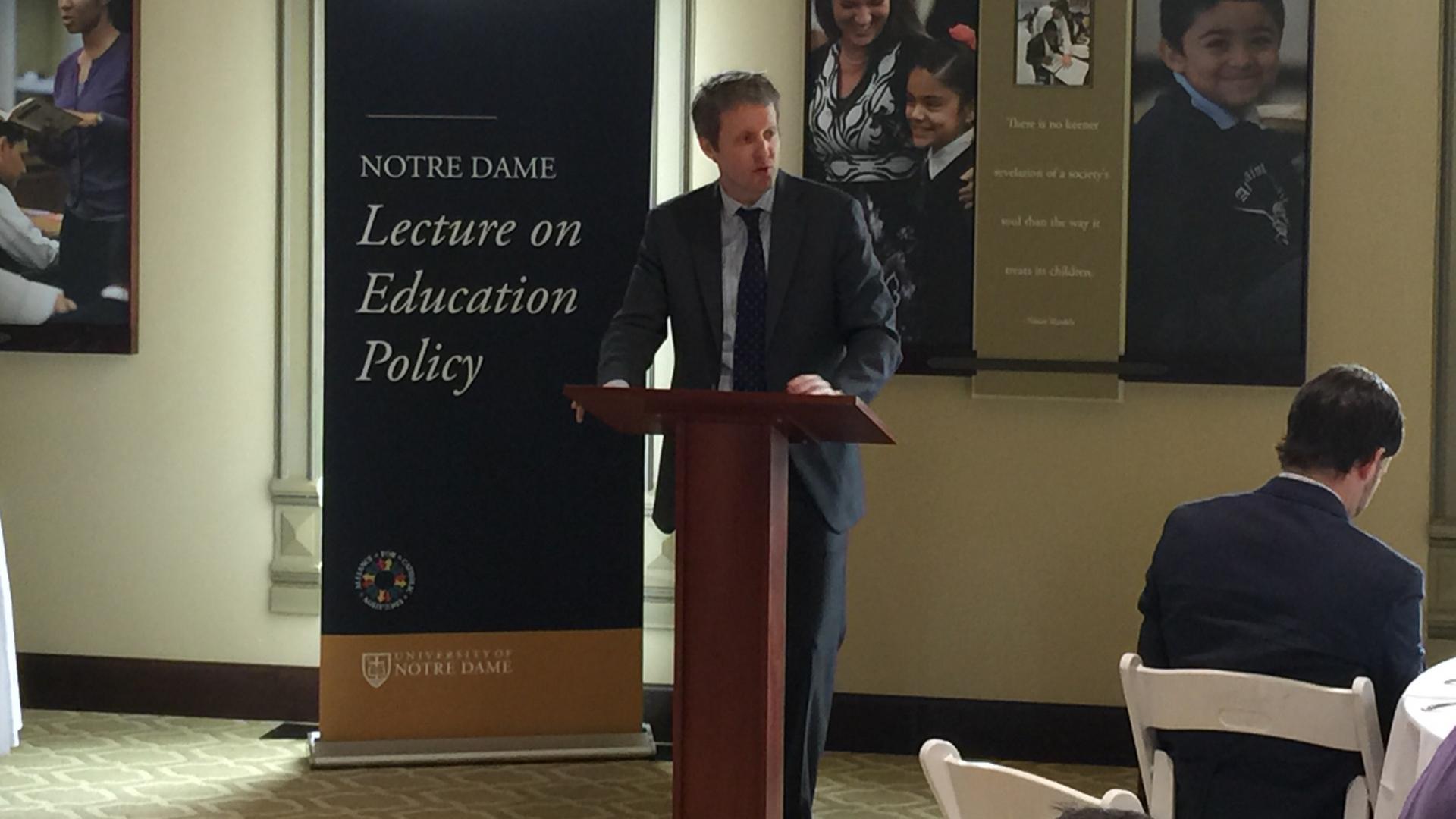Parental choice among schools has proven "poverty need not be destiny" for children, and it's time to build upon that progress with new initiatives, K-12 education leader Marc Sternberg told a Notre Dame audience Feb. 24.
Sternberg, director of the Walton Family Foundation's K-12 Education Program, outlined additional steps to ensure a high-quality education for all students. Those steps include expanded parental choice, a wider range of school models, improved development of educators, and "consequential accountability" among schools.
"We need to grow quality seats ambitiously, and we need to eliminate underperforming seats judiciously," Sternberg said as he delivered the inaugural Notre Dame Lecture on Education Policy, sponsored by the University's Alliance for Catholic Education (ACE). The lecture, titled "The Next Stage of Transforming Education," drew a large audience to Remick Commons in Visitation Hall.
A former teacher and educational leader, Sternberg noted the importance of Catholic schools among the mix of traditional public school, charter school, and private school sectors which the Walton Family Foundation sees generating both quality and choice in under-served urban neighborhoods.
"We believe that Catholic schools, with their strong history in these communities, are integral to serving these communities well," Sternberg said.
He praised ACE as an important contributor, through initiatives supported by the foundation and others, to excellence and accessibility in Catholic schools. "[ACE] is one of the bright examples we can point to across sectors of the kind of hands-on work directly improving schools and outcomes."
Sternberg said the foundation's goals are expanding. It will spend more than $1 billion over five years to expand school quality in 13 cities.
"We need to explore a next generation of school models," as well as new ways to develop educators with "the talent to make the school models real and possible," he said
Some 3.5 million students in the United States currently attend charter schools and publicly supported private schools, Sternberg said, adding that the foundation hopes the number will rise to 10 million in the next decade.
"You will hear people say that education is the civil rights movement of today," he said. "That is not rhetoric or hyperbole."
 Alliance for Catholic Education
Alliance for Catholic Education
